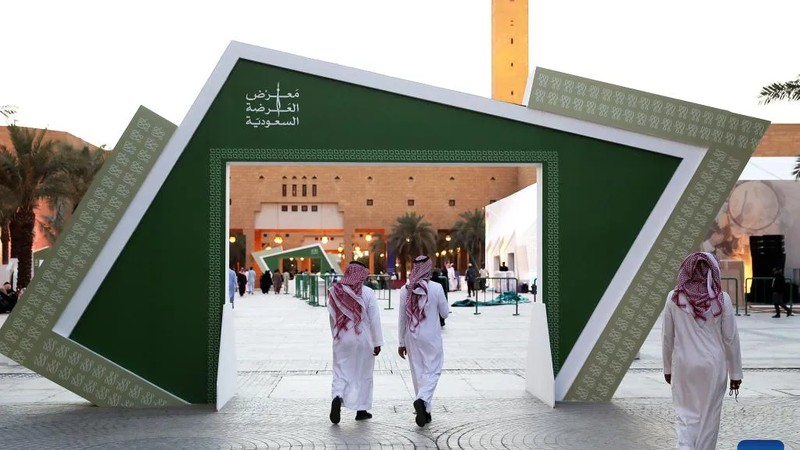In recent years, the Gulf Cooperation Council (GCC) countries, particularly the United Arab Emirates (UAE) and Qatar, have significantly intensified their economic engagement with Africa. Beyond traditional trade and remittance flows, this engagement reflects a calculated strategy to diversify investments away from oil dependency, secure access to critical resources, and enhance geopolitical influence. For the Middle East, Africa is not merely a recipient of capital; it is a theatre for strategic deployment of wealth, expertise, and influence in a rapidly evolving global economic order.
The $1.5 Billion AFC Syndicated Loan: A Signal of Commitment
A pivotal moment underscoring this strategy was the UAE-led $1.5 billion syndicated loan arranged for the Africa Finance Corporation (AFC), the largest ever secured by a Lagos-based financial institution. Initially targeting $1.3 billion, the facility was oversubscribed, reflecting a surge in appetite from Gulf and global lenders alike. Banks including Abu Dhabi Commercial Bank, First Abu Dhabi Bank, and Mashreqbank, alongside international financiers such as Standard Chartered and Commerzbank, played central roles as coordinators and bookrunners.
From a Middle Eastern standpoint, this transaction demonstrates more than financial support; it signals the region’s intent to position itself as a strategic partner in Africa’s development trajectory. The favourable pricing of the debt compared with AFC’s prior $1.16 billion facility further underscores Gulf lenders’ confidence in African markets, despite inherent operational and political risks.
Africa Through a Gulf Lens: Opportunity, Security, and Returns
The GCC’s interest in Africa has grown sharply post-Covid, driven by heightened awareness of food security, resource scarcity, and economic diversification. Analysts such as Charlie Robertson, chief economic adviser at Equity Bank (Kenya), note that Africa’s projected GDP growth of 3.7% in 2025 and an average of 4.2% through 2027 presents a compelling case for investment. Kristian Coates Ulrichsen of the Baker Institute highlights that Africa’s wealth of natural resources, coupled with its largely untapped markets, offers the Middle East a dual opportunity: secure supply chains for critical minerals and strategic positioning in emerging consumer markets.
Indeed, Gulf sovereign wealth funds and state-linked companies have acted on this premise. Qatar’s Al Mansour Holdings, for example, recently announced plans to invest $103 billion across six African nations, including the Democratic Republic of Congo, Mozambique, and Zambia, with a focus on resource extraction and infrastructure. Similarly, UAE-based entities such as DP World, Masdar, and Dubai Investments have expanded operations continent-wide, with DP World committing $3 billion for port infrastructure over the next five years. These investments are emblematic of a broader strategy to intertwine economic returns with geopolitical influence, energy security, and regional connectivity.
Navigating Risk: Operational and Political Considerations
Gulf investors approach Africa with pragmatism, recognising that opportunities are accompanied by complex operational challenges. Currency devaluation, foreign-exchange restrictions, and political instability have complicated investment flows. The temporary suspension of Emirates airline flights to Nigeria in 2022, due to difficulties repatriating hundreds of millions of dollars in ticket revenue, illustrates the operational hurdles Gulf firms must navigate. Legal disputes, such as DP World’s protracted conflict with Djibouti over the Doraleh port, further highlight the intricacies of deploying capital in politically sensitive environments.
Moreover, experts such as Rachel Ziemba caution that announced investment commitments do not always translate into immediate deployment. While Gulf nations have a reputation for high-profile announcements, practical execution often depends on alignment with local partners and risk assessments. Nevertheless, the announcements themselves serve strategic purposes, signalling intent and commitment to both African governments and global stakeholders.
Strategic Sectors: Critical Minerals, Energy, and Food Security
Middle Eastern engagement in Africa is targeted and strategic. Mining and critical minerals, particularly those vital for the energy transition, are central to Gulf investment strategies. The UAE and other GCC states are acutely aware that Africa’s mineral wealth—including cobalt, lithium, and rare earths—underpins the global shift toward renewable energy and electric mobility. Complementing resource-based investment, Gulf actors are also expanding into renewable energy projects, logistics, and agribusiness, recognising the dual objectives of economic returns and regional stability.
The UAE’s trade agreements with countries such as Kenya, Angola, and Morocco further embed this approach, while the South African Business Council of the UAE’s recent discussions with Emirates’ trade officials illustrate a concerted effort to align private-sector initiatives with strategic national objectives. For Middle Eastern states, Africa represents a rare convergence of commercial opportunity, geopolitical influence, and a testing ground for diversified portfolios beyond oil and gas.
A Calculated, Long-Term Engagement
Viewed through a Middle Eastern lens, Africa is both a frontier of opportunity and a crucible for strategic risk management. The AFC syndicated loan, Gulf sovereign wealth commitments, and ongoing investments in infrastructure, critical minerals, and renewable energy demonstrate a calculated long-term engagement. The GCC is not merely financing development; it is shaping its own economic resilience, securing strategic resources, and projecting influence in a multipolar world. While challenges persist, the trajectory is clear: Africa is central to the Middle East’s evolving global strategy, and its future economic landscape will be increasingly shaped by the decisions and investments emanating from the Gulf.
Written By:
*Dr Iqbal Survé
Past chairman of the BRICS Business Council and co-chairman of the BRICS Media Forum and the BRNN
*Chloe Maluleke
Associate at BRICS+ Consulting Group
Russian & Middle Eastern Specialist
** MORE ARTICLES ON OUR WEBSITE https://bricscg.com/
** Follow https://x.com/brics_daily on X/Twitter for daily BRICS+ updates
